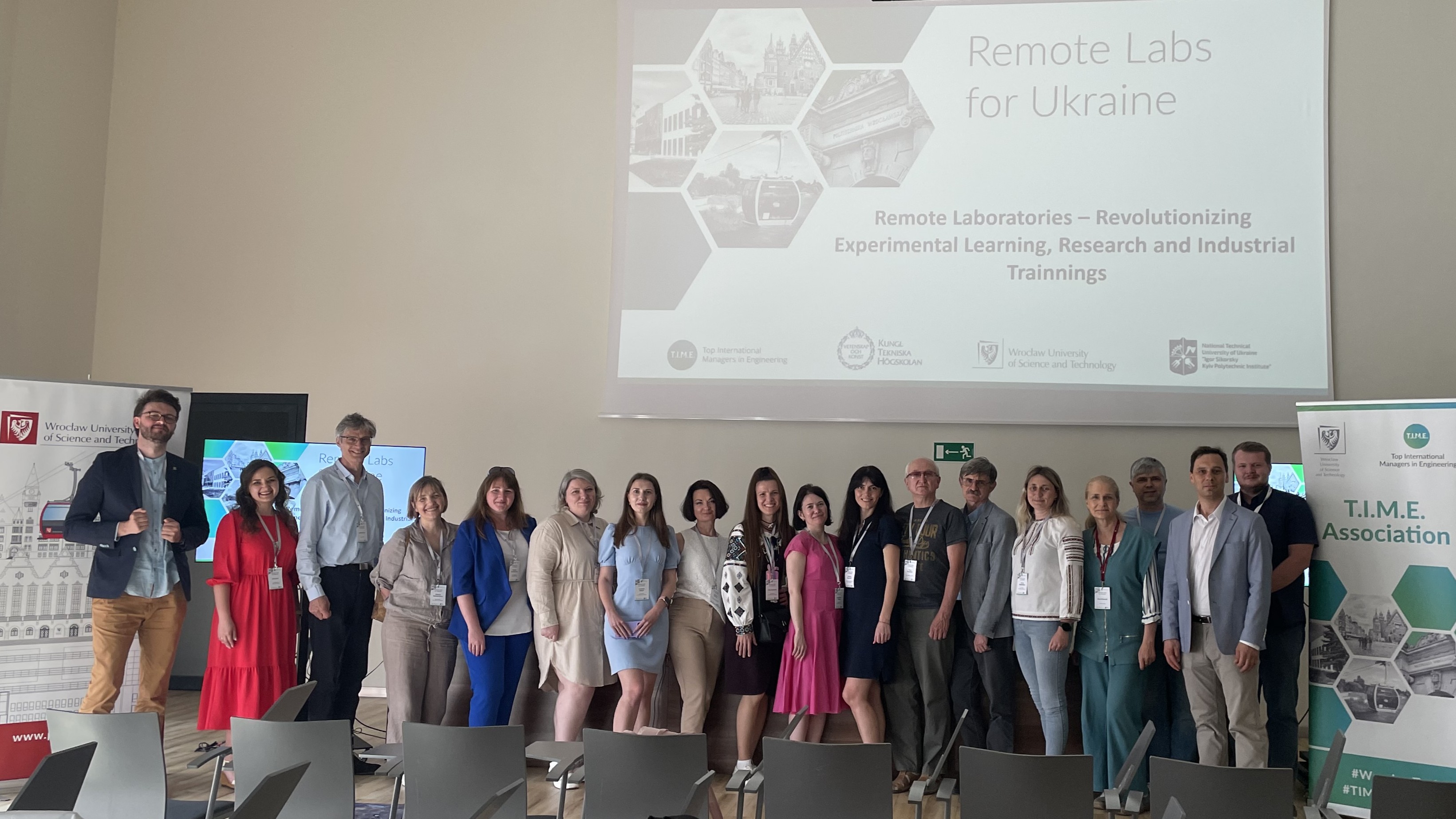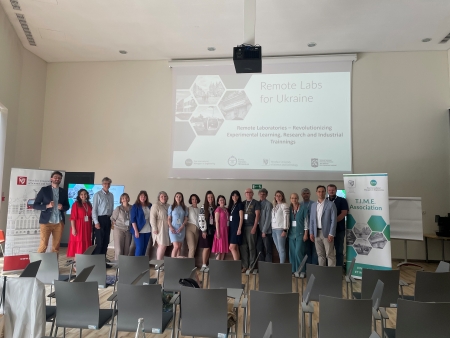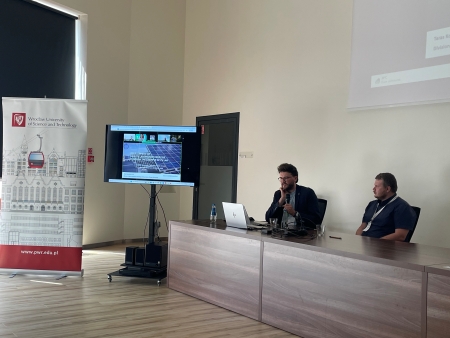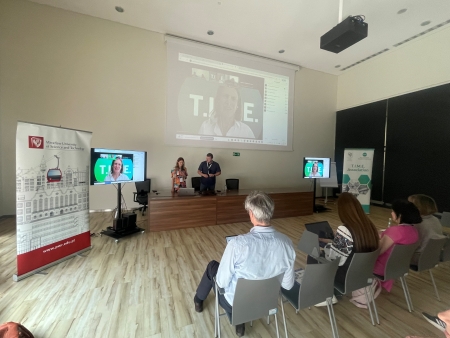KTH Hosts International Workshop on Remote Labs to Support Engineering Education in Ukraine

In response to the challenges facing Ukrainian universities due to the ongoing war, KTH Royal Institute of Technology co-organized an international workshop focused on remote laboratory solutions. The initiative brings together partners from across Europe to ensure continued access to high-quality engineering education under crisis conditions.
KTH Leads International Workshop on Remote Labs to Support Ukrainian Engineering Education
With the war in Ukraine continuing to affect academic infrastructure and access to education, KTH Royal Institute of Technology has taken a leading role in supporting Ukrainian universities through technology-driven solutions. In collaboration with Wrocław University of Science and Technology , Igor Sikorsky Kyiv Polytechnic Institute (KPI) , and the T.I.M.E. Association , KTH co-organised the international workshop “ Remote Labs with Focus on Ukraine ” to address the urgent need for resilient, high-quality engineering education amid the crisis.

The two-day event, held in Wrocław and streamed online, brought together researchers, educators, and digital learning specialists to explore how Remote Laboratories — systems that allow students to conduct hands-on experiments online — can serve as a lifeline for engineering education in war-affected regions.
“Remote labs are not just a technical solution—they’re a necessity,” said Taras Koturbash, researcher at KTH’s Department of Energy Technology. “Students in Ukraine often cannot physically attend lab sessions because of destroyed infrastructure or security risks. Our goal is to provide practical, flexible tools that ensure they can continue learning—no matter where they are.”
Heat and Power Technology Division Showcases Remote Labs in Energy Technology

KTH presented two remote laboratory environments currently in use for student learning: the TurboLabs and the SolarLabs , both based on LabVIEW’s web-deployable interface. These systems offer remote, real-time control of experimental setups — enabling meaningful learning in both energy technology and turbomachinery.
The KTH team also presented a low-cost prototype of the PV lab using Arduino, as an example of how resource-efficient setups can be replicated in other institutions across Europe and beyond.
“There is a growing need—especially in Ukraine—for solutions that allow teaching to continue under extreme conditions,” noted Torkel Werge, Senior Advisor for International Relations at KTH. “This workshop has created new momentum for cooperation and knowledge sharing between institutions.”
T.I.M.E. Association: A Key Enabler

The workshop was made possible with support from the T.I.M.E. Association (Top International Managers in Engineering), which sponsored the event and enabled the participation of multiple Ukrainian university staff. As the first Ukrainian member of T.I.M.E., KPI’s involvement marked a significant step toward expanding the network’s reach in Eastern Europe and aligning with its commitment to sustainability and educational accessibility.
A Vision for Educational Resilience
The workshop reflects KTH’s commitment to advancing sustainable, digitally enabled engineering education. By building resilient educational infrastructure and empowering faculty with adaptable remote lab tools, institutions can maintain academic continuity — even in times of war, displacement, or restricted mobility.
The event also served to reinforce KTH’s strategic goals within the UN Sustainable Development Framework, and the experiences shared will be presented at future T.I.M.E. Association assemblies to further disseminate best practices across the network.
